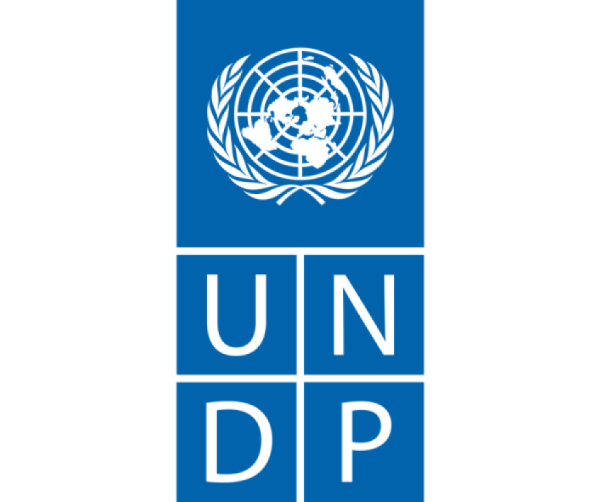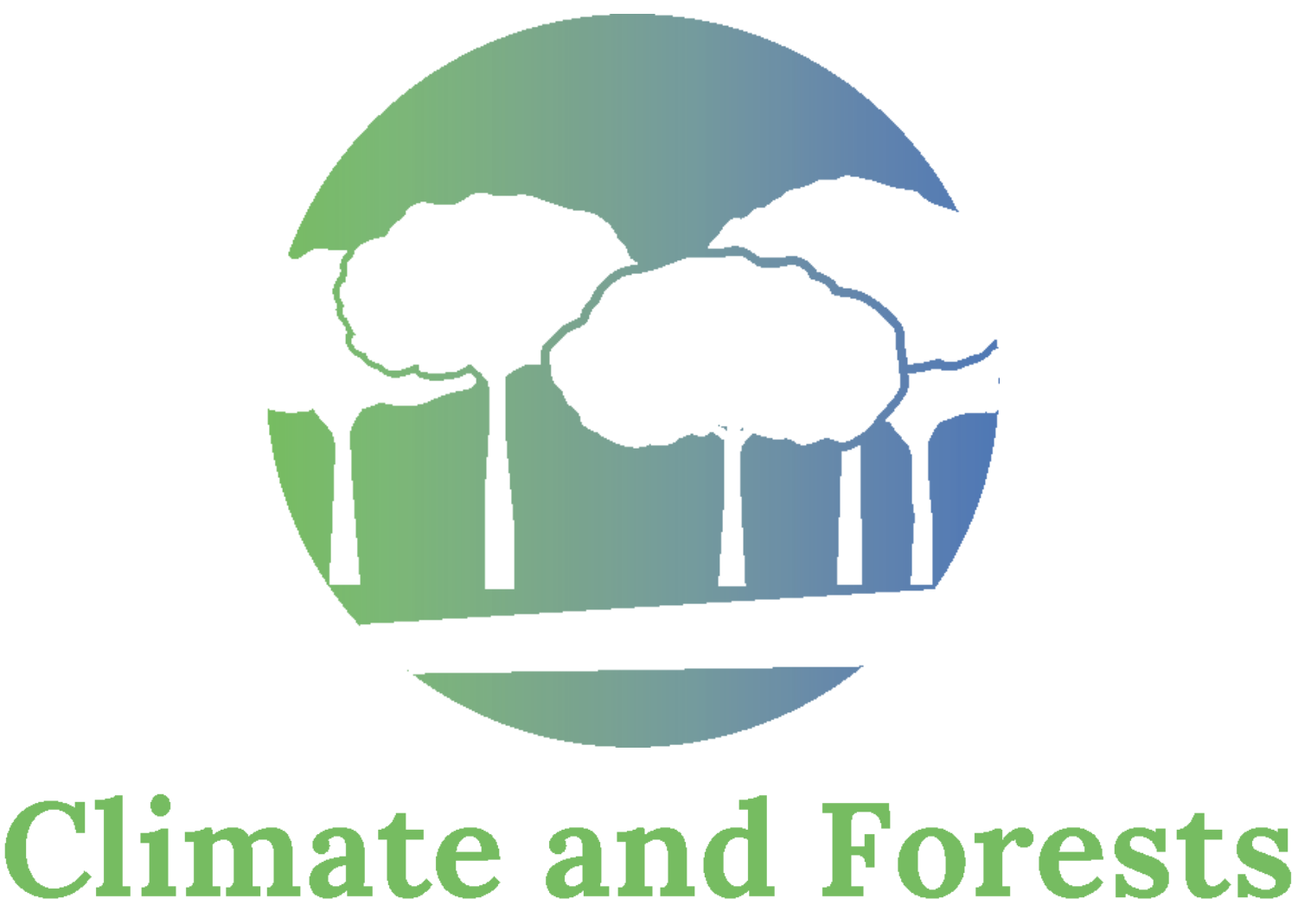"We need to make our voices heard":
Indigenous activist Briseida Iglesias on women's leadership, climate advocacy, and cultural identity
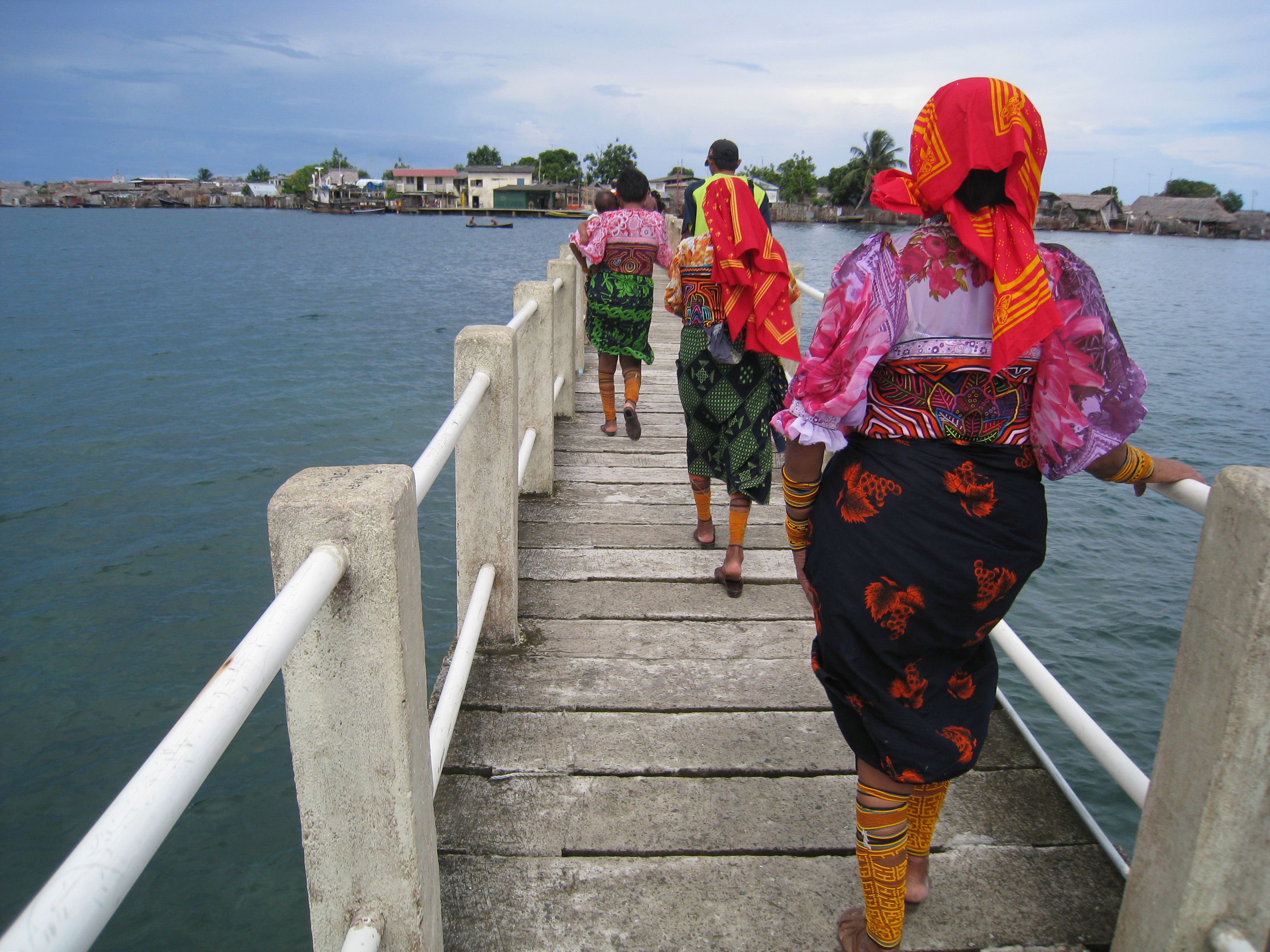
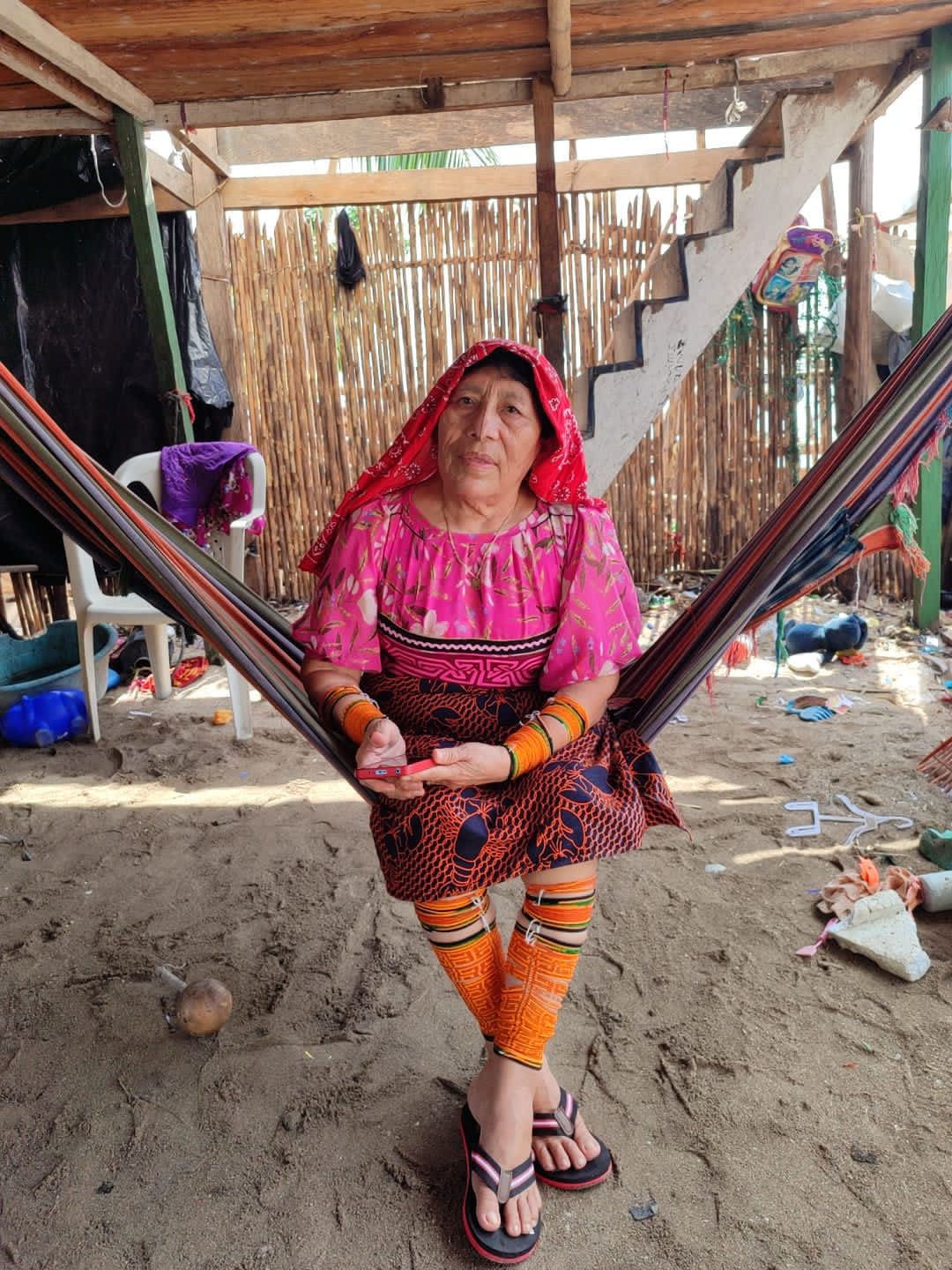
Briseida Iglesias, hailing from the Indigenous Guna community in Panama, underscores the integral link between cultural identity, environmental stewardship and the leadership of women in addressing climate change. Photo copyright: Briseida Iglesias
Briseida Iglesias, hailing from the Indigenous Guna community in Panama, underscores the integral link between cultural identity, environmental stewardship and the leadership of women in addressing climate change. Photo copyright: Briseida Iglesias
Briseida Iglesias, from the Indigenous Guna community of Panama, is a fervent advocate for environmental sustainability and cultural heritage. Raised in Comarca Guna Yala along the Caribbean Coast, Briseida Iglesias actively engages in preserving her ancestral traditions through participation in cultural congresses, particularly emphasizing dance, history and cosmovision. The Guna Yala Indigenous peoples have a high degree of autonomy and govern themselves through their own political and social structures, preserving their cultural heritage and traditions. Guna women hold significant roles in decision-making and community affairs. Beyond local borders, Briseida Iglesias addresses global audiences on climate change and the importance of collective action. Briseida's journey highlights the connection between cultural identity, environmental stewardship and women’s leadership in tackling climate change.
The following interview with her was recorded by UNDP Climate & Forests, with support from the UN-REDD Programme, in September 2022 during Climate Week in New York City and updated with additional questions in February 2024.
Good morning. Could you please introduce yourself, share your name, the community and organization you represent, and the location you traveled from?
My name is Briseida Iglesias. I hail from Guna Yala but currently reside in Panama City. This year, I traveled to Italy to represent my comarca (region), focusing on dance, history, and cosmovision of our people. I represent the women's organization named Bundorgan established within our cultural congress, where I focus on the preservation of our cultural heritage.
Could you share why you are in New York today and which cause you are advocating for?
Briseida Iglesias: Today, I stand here as a defender against the daily threat of climate change. I advocate for our Mother Earth because she is the source from which we all come. When I speak of the Mother, I speak for all of us. The rivers, representing our blood, and the sea, where corals serve medicinal purposes, are integral parts of our daily existence. The universe, including the food we consume, demands that we find ways to combat climate change. It's not just the responsibility of Indigenous Peoples, but of all communities, regardless of race, to join hands in protecting our shared home, the Earth. We are equal inhabitants in this world, and it's our duty to defend the Mother who sustains us.
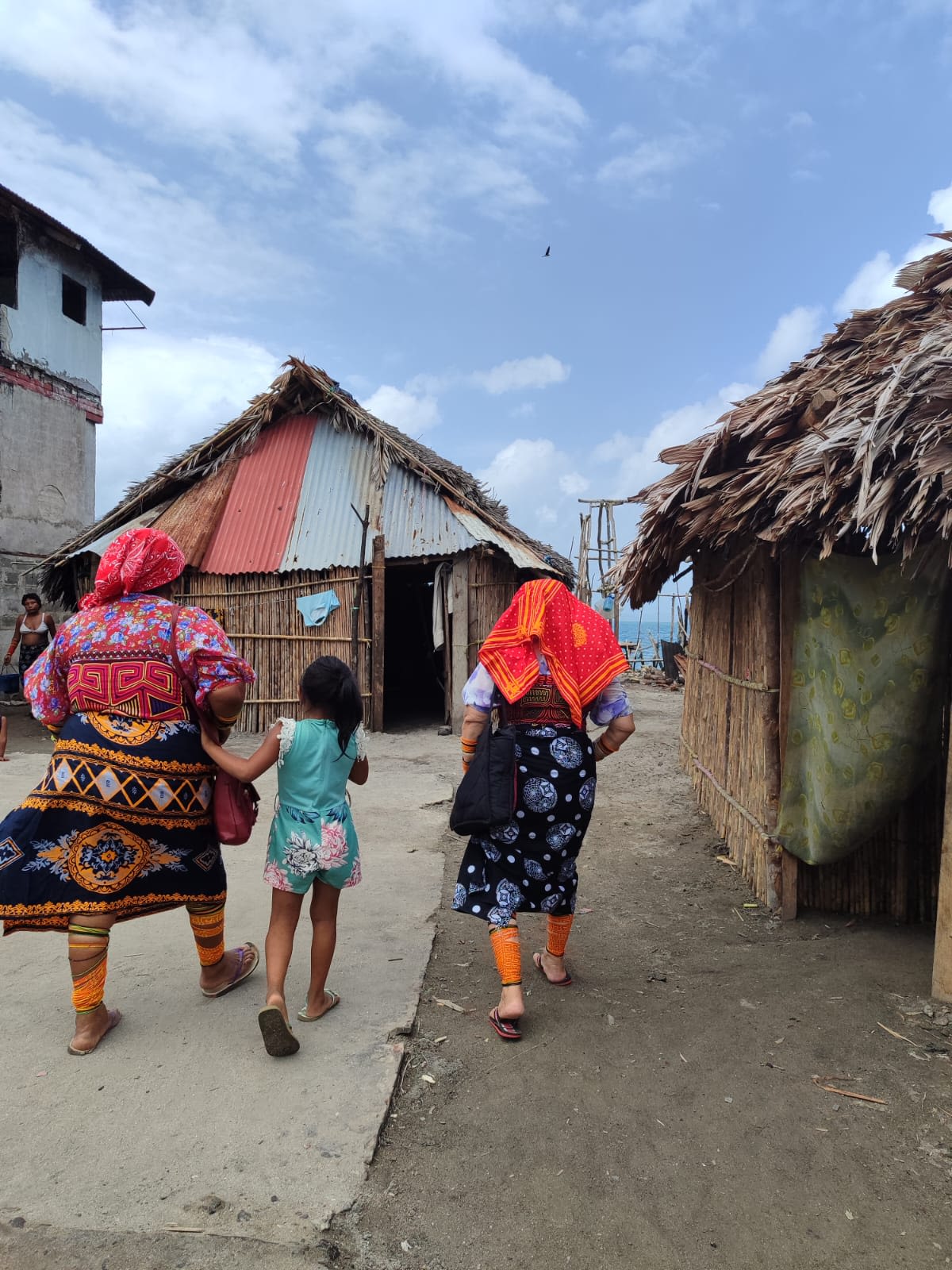
Briseida Iglesias (right) walking through her community in Guna Yala, Panama. Photo copyright: Briseida Iglesias
Briseida Iglesias (right) walking through her community in Guna Yala, Panama. Photo copyright: Briseida Iglesias
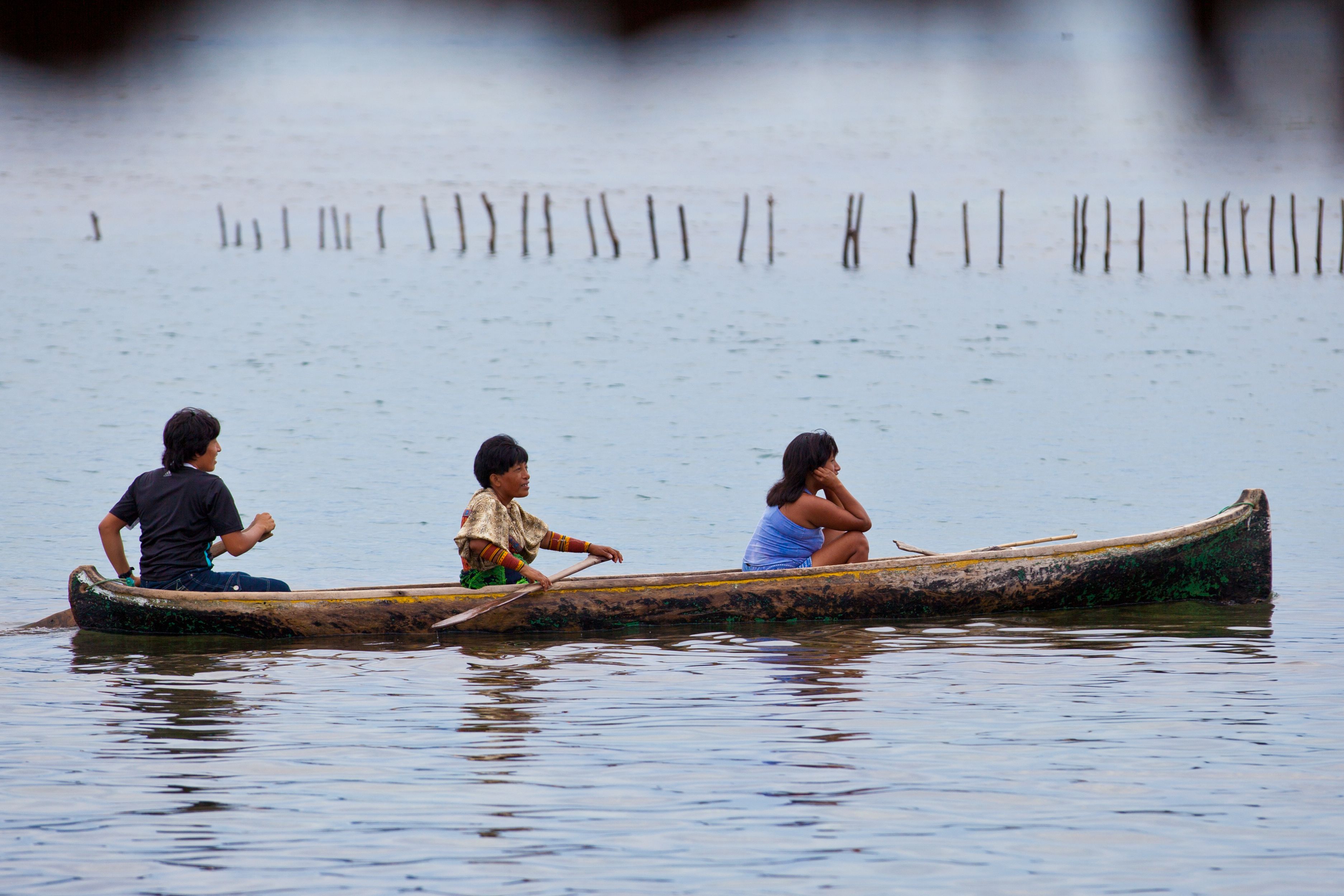
What, in your view, were the accomplishments of COP28?
Briseida Iglesias: For me, COP28 proved to be a deeply intriguing experience, as it brought together not just one community but a myriad of voices. I believe that understanding this change is crucial, transcending individual communities or nations to encompass the entirety of our planet. Within this framework, I find great significance in the recognition of Indigenous perspectives, as we inherently understand the essence of nature – the trees, rivers, air and sun – gifts bestowed upon us. It's disheartening to witness the disregard for these gifts. During COP28, I engaged in numerous interviews, reflecting on the creation of nature since time immemorial, delivering a powerful message. I hold in high regard the Indigenous participants who echoed the sentiment that Mother Earth relies on our stewardship. This, I believe, stands as a significant accomplishment stemming from COP28.
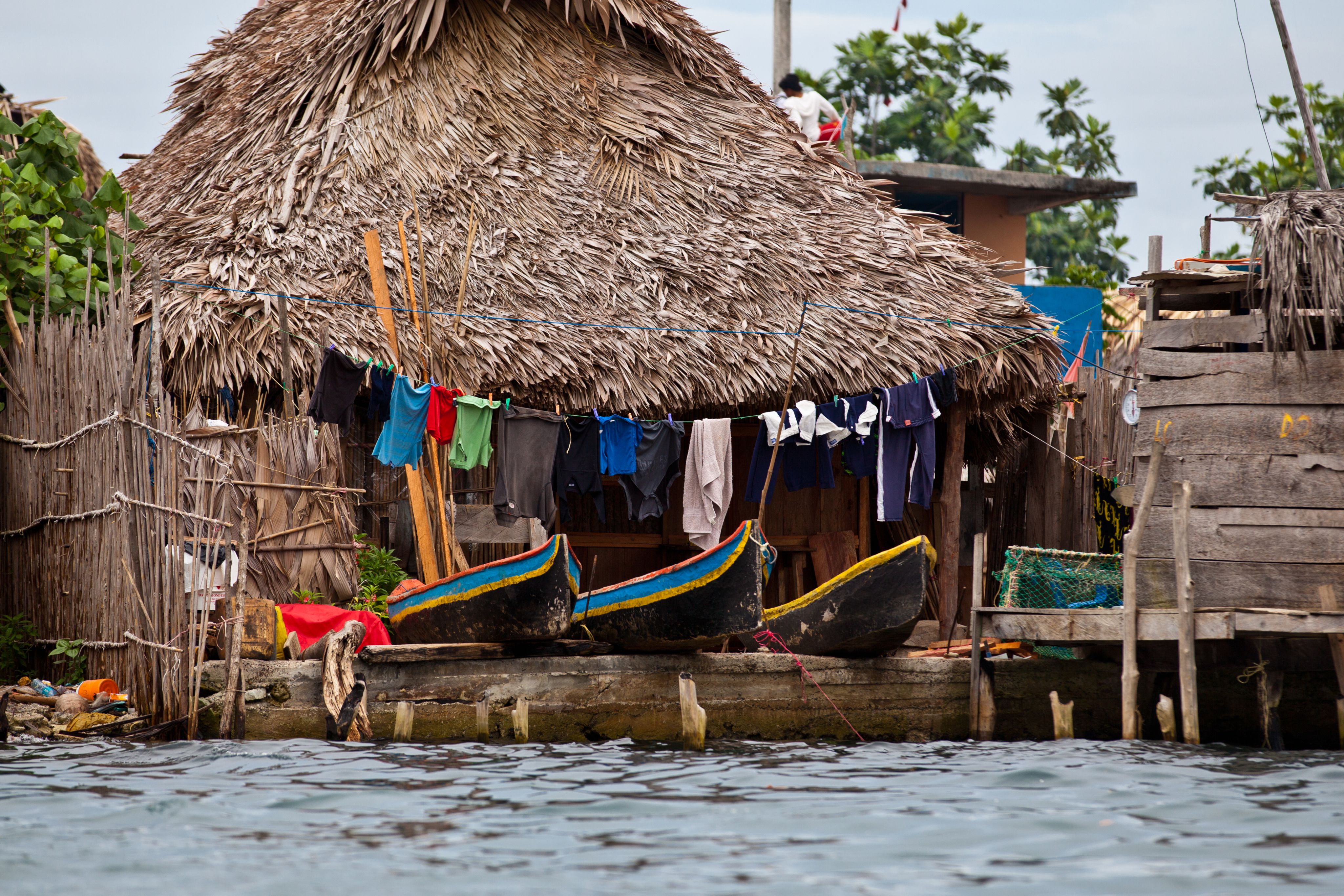
Agriculture and fishing are essential components of the Guna Yala economy. The island communities cultivate crops such as plantains, yams, and corn in small-scale plots, while fishing provides a vital source of protein. Photo copyright: Ben Kucinski
Agriculture and fishing are essential components of the Guna Yala economy. The island communities cultivate crops such as plantains, yams, and corn in small-scale plots, while fishing provides a vital source of protein. Photo copyright: Ben Kucinski
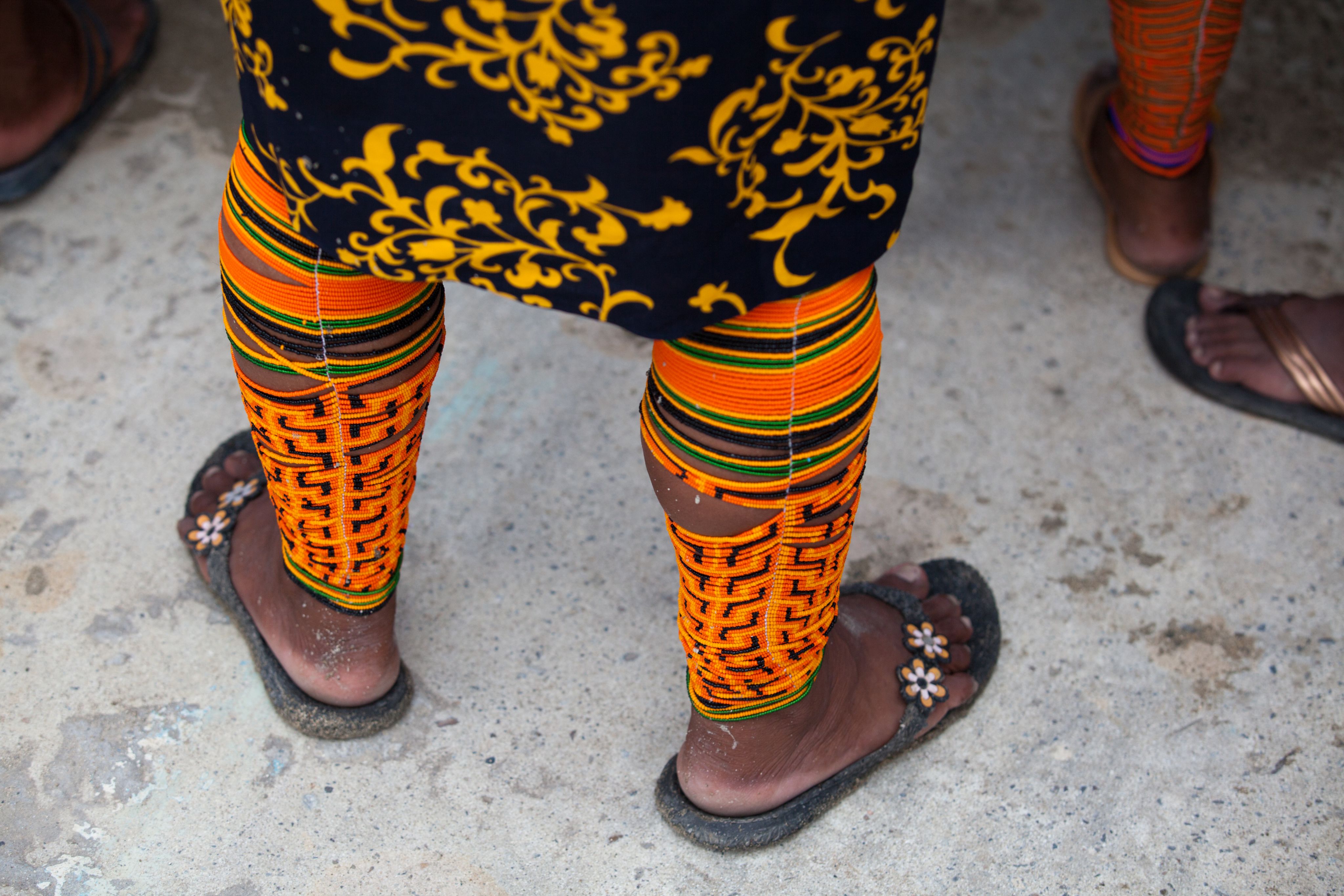
Woman wearing traditional Guna leg bead bracelet. According to the beliefs of the Gunas, the multicolored bracelets protect its holder from bad spirits. Photo copyright: Ben Kucinski
Woman wearing traditional Guna leg bead bracelet. According to the beliefs of the Gunas, the multicolored bracelets protect its holder from bad spirits. Photo copyright: Ben Kucinski
You've touched upon the urgency of addressing climate change. Can you elaborate on how we can collectively halt this threat and draw inspiration from our ancestors?
Briseida Iglesias: We must recognize that not only Indigenous Peoples but all communities worldwide, irrespective of race, need to collaborate in the fight against climate change. My presence in New York is a call to action, urging everyone to find alternatives by looking to our ancestors. We need to draw from the knowledge and practices of our grandmothers and grandfathers to understand how they maintained harmony with nature. By bridging the past with the present, we can envision a future that safeguards our planet from gradual destruction.
What are your thoughts regarding the protests that took place in Panama last year? In what ways do you believe peaceful demonstrations can influence and bring about social change?
Briseida Iglesias: Throughout history, our ancestors practiced collective decision-making, prioritizing communal gatherings to identify sacred environmental elements, like trees, crucial for life and energy. In conflicts such as mining disputes, Indigenous communities unite, understanding the consequences of extracting gold, equating it to environmental harm. They advocate against mining on sacred lands, rich in essential nutrients vital for ecosystem health. Protests underscore the necessity of consulting Indigenous communities, emphasizing collective consultation to prevent environmental missteps and ensure responsible stewardship of Mother Earth.
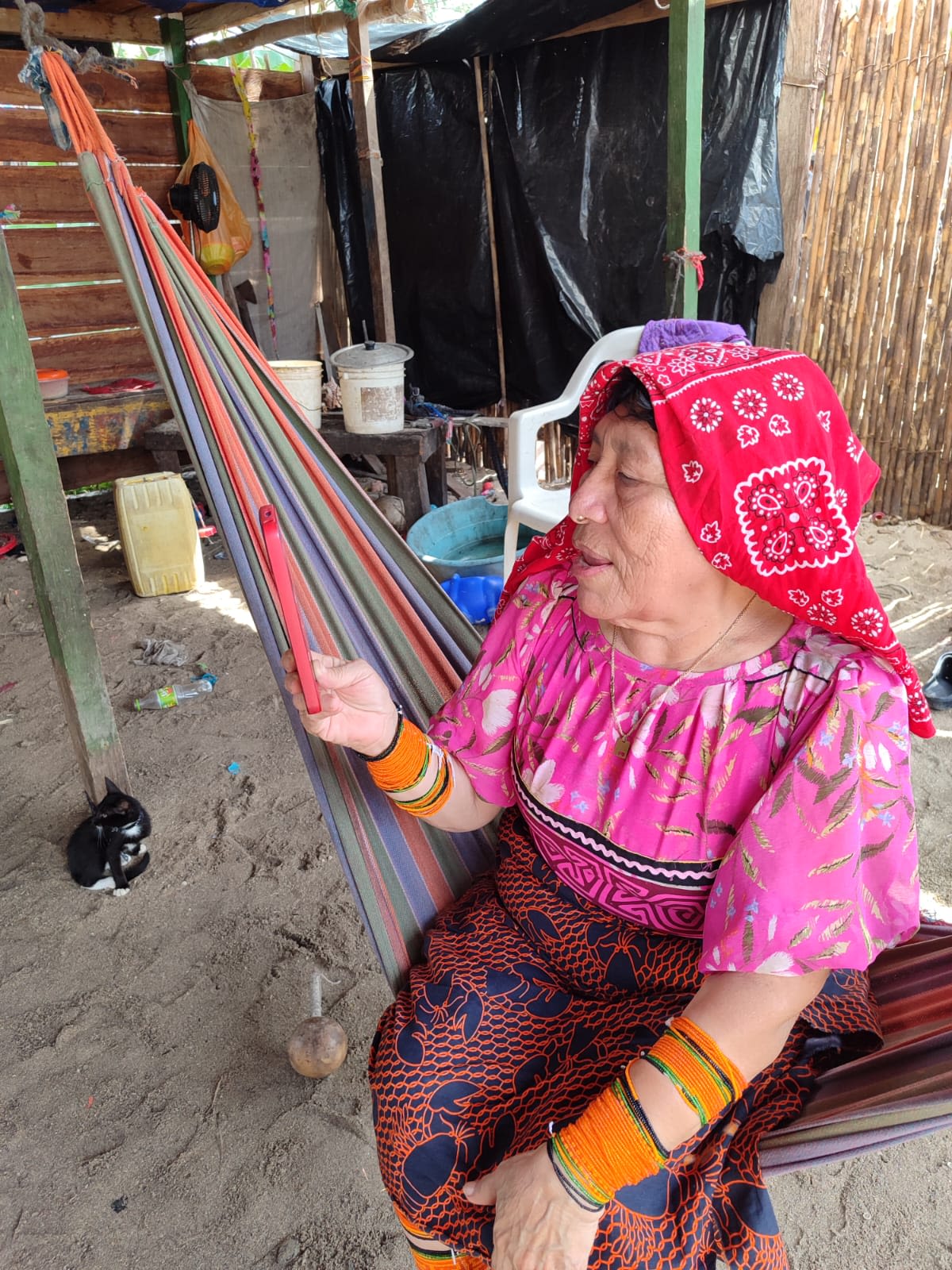
Briseida Iglesias during the phone interview with UNDP in her native Guna Yala community, February 2024. Photo copyright: Briseida Iglesias
Briseida Iglesias during the phone interview with UNDP in her native Guna Yala community, February 2024. Photo copyright: Briseida Iglesias
Speaking of the impact of climate change on your community, how has it affected your daily life, particularly in aspects like agriculture and waste disposal?
Briseida Iglesias: Climate change has significantly disrupted our traditional practices. For instance, our ancestors had specific times for planting and cutting down trees, aligning with the patterns of rain and sunlight. However, with the changing climate, we face challenges in determining the appropriate times for these activities. Additionally, the influx of tourists, bringing with them disposable items like bottles, poses a threat to our environment. Proper waste disposal becomes a critical concern, affecting our beaches and riverbanks. Additionally, the rising sea levels are clear indications that climate change is already impacting us.
It's evident that your community is actively addressing the challenges posed by climate change. Can you share some specific actions your community is taking to combat these issues?
Briseida Iglesias: In our fight against climate change, we focus on sustainable practices. We engage in planting medicinal plants and trees, preserving rivers and implementing responsible waste disposal methods. Our efforts extend to educating the youth about the importance of seeking the wisdom and knowledge of our ancestors. By blending traditional practices with contemporary approaches, we strive to create a balance that ensures the well-being of our community and the environment.
Given the importance of forests in preserving ecosystems, can you elaborate on the significance of the forests in your community and how they contribute to your way of life?
Briseida Iglesias: Forests are integral to our community, serving as the lungs of all living beings. They represent unity and interconnectedness, just like the leaves of trees swaying together in the wind. The forest is not just a source of sustenance but also holds the spirit of the mountains where we reside. It symbolizes the collective strength and spirituality of our people, emphasizing the importance of social equality and unity in our way of life.
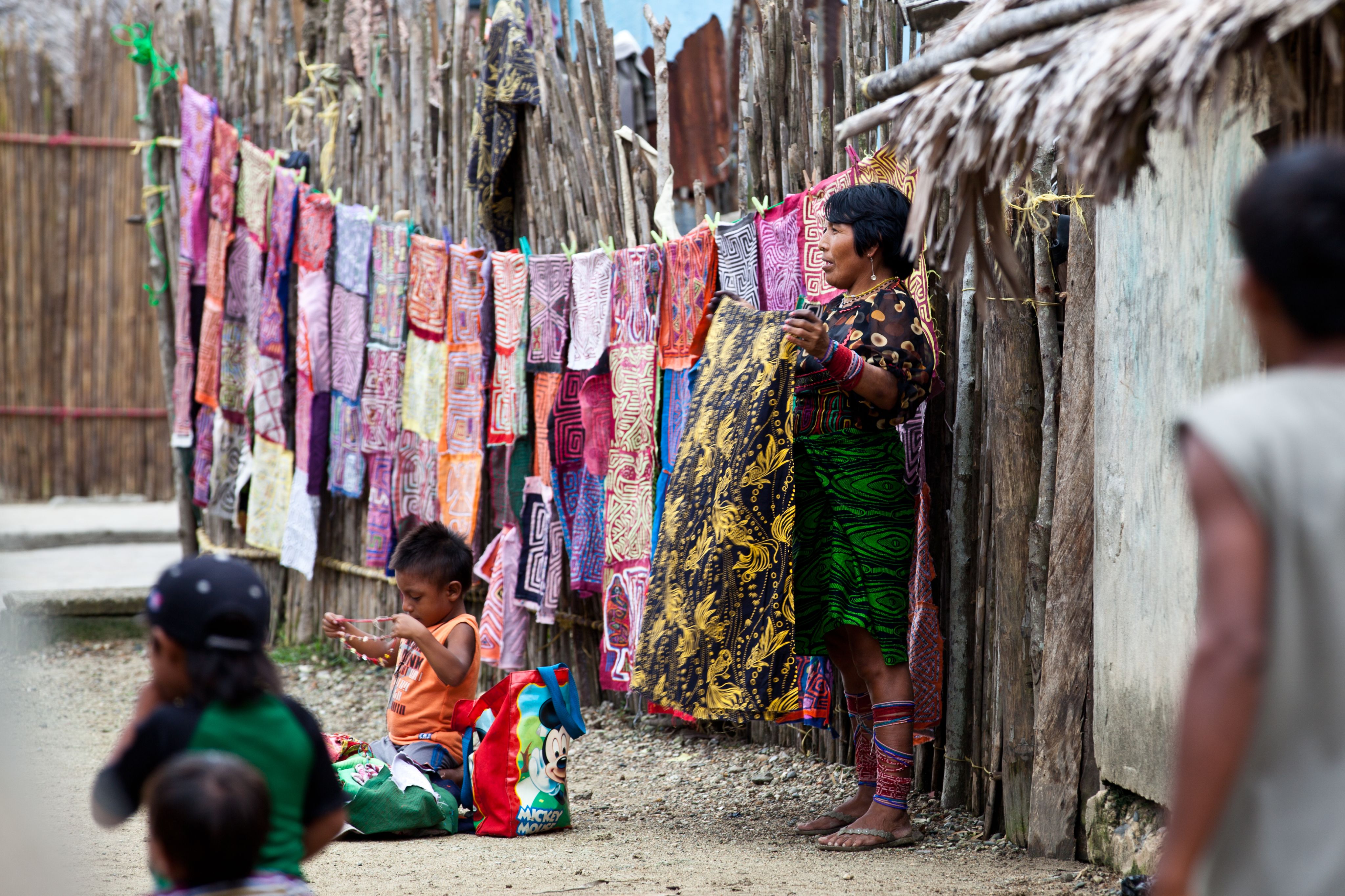
You mentioned the challenges faced by women in your community, particularly regarding discrimination. How does this impact your work, and what steps are being taken to address these issues?
Briseida Iglesias: Discrimination against women remains a challenge in our modern, globalized world. We, as women, face obstacles in having our voices heard and respected in decision-making processes. This modern form of patriarchy affects our representation and participation in Guna Yala Congress. However, our struggle is centered on valuing ourselves and upholding our rights. We aim to overcome these challenges by promoting the idea that women have a crucial role in shaping social, economic, and political landscapes.
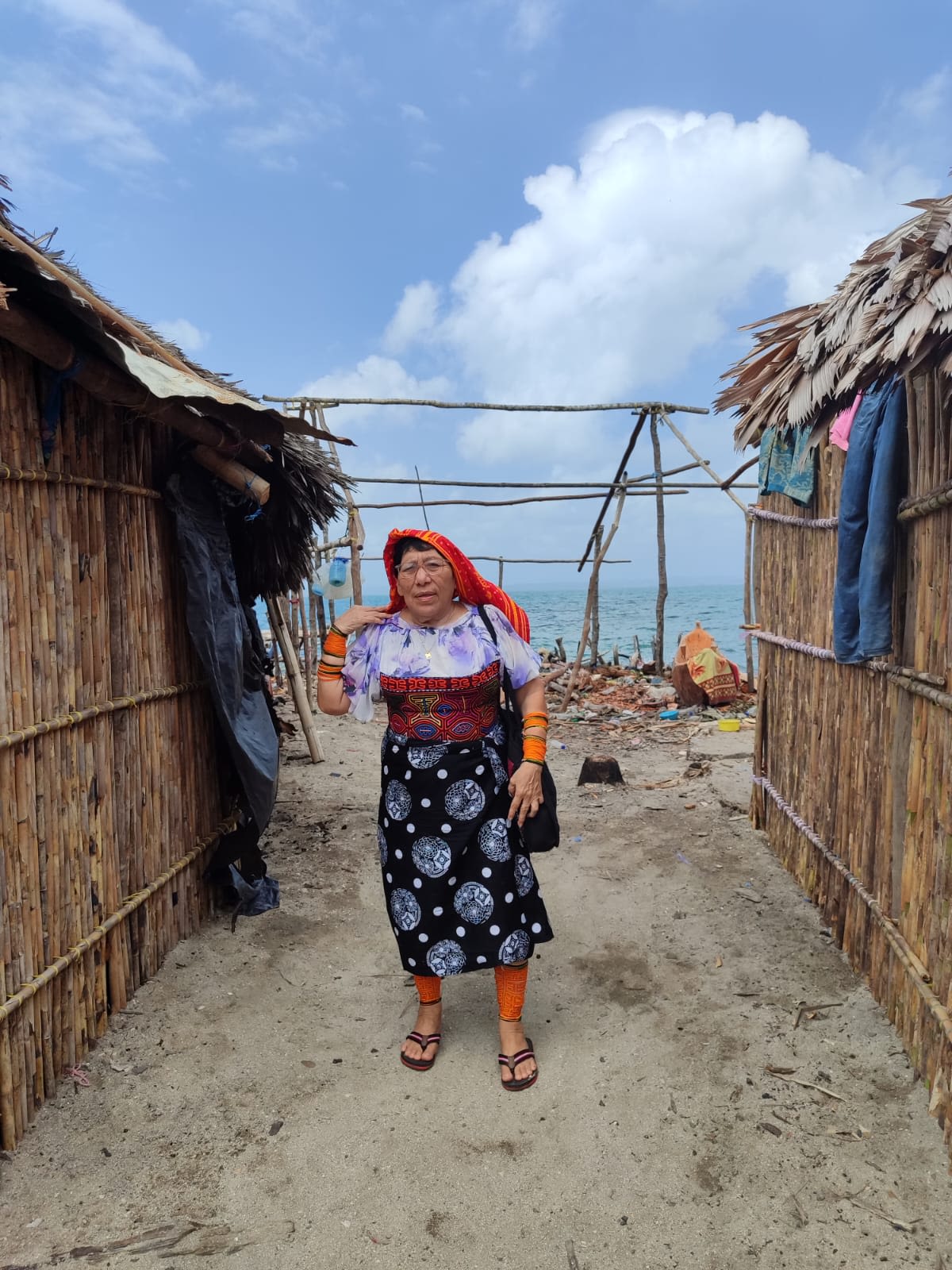
The Guna Yala Indigenous Peoples have a high degree of autonomy and govern themselves through their own political and social structures, preserving their cultural heritage and traditions. Guna women holding significant roles in decision-making and community affairs. Photo copyright: Briseida Iglesias
The Guna Yala Indigenous Peoples have a high degree of autonomy and govern themselves through their own political and social structures, preserving their cultural heritage and traditions. Guna women holding significant roles in decision-making and community affairs. Photo copyright: Briseida Iglesias
"As women, our struggle is centered on valuing ourselves and upholding our rights. We aim to overcome these challenges by promoting the idea that women have a crucial role in shaping social, economic and political landscapes."
Briseida Iglesias
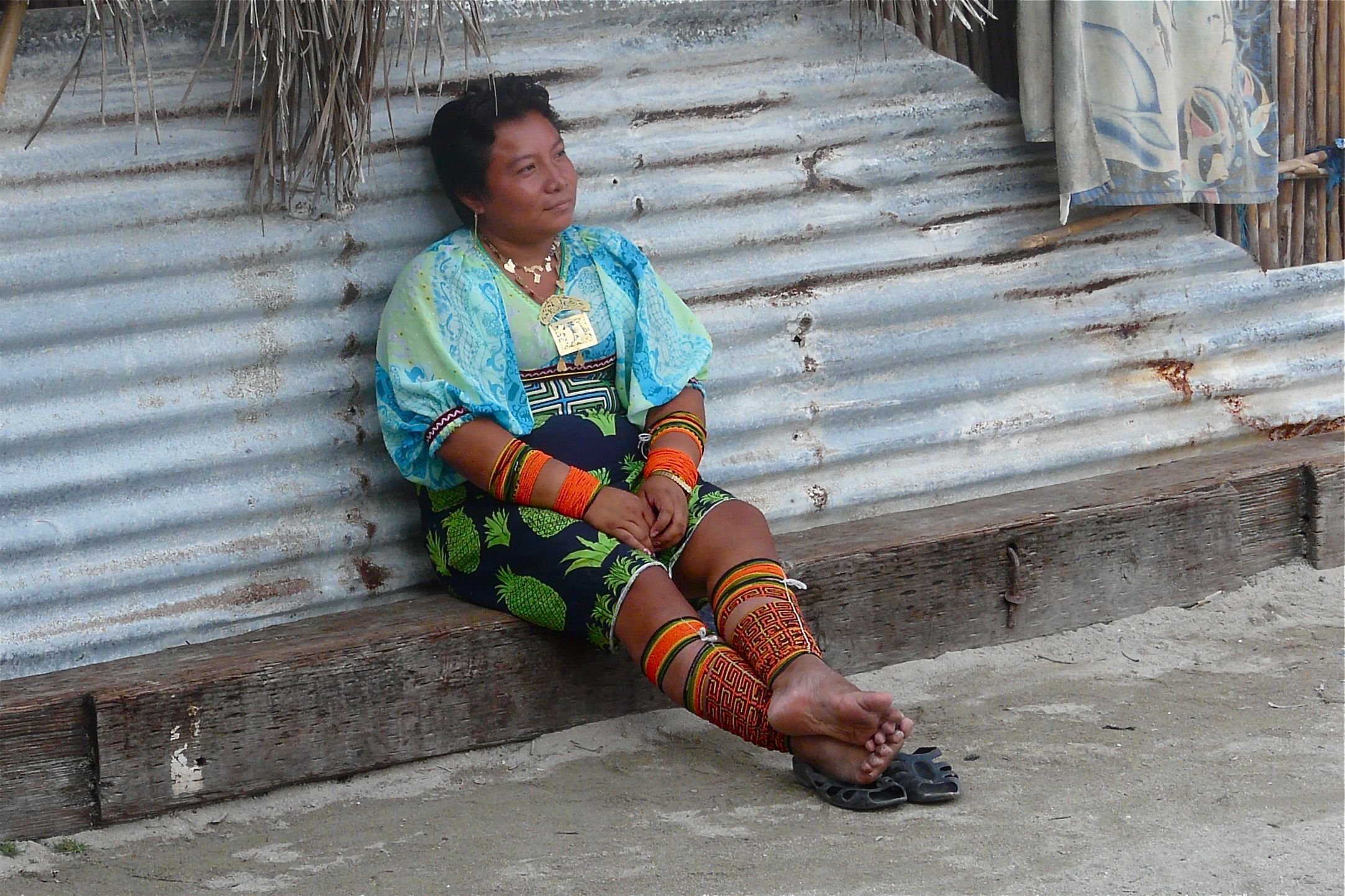
Moving on to traditional medicine, could you share insights into how your community practices traditional healing methods and why they are essential?
Briseida Iglesias: Traditional medicine in our community is diverse, encompassing not only herbal remedies but also a holistic approach to well-being. Our connection with the land and its resources, such as cassava, yam, and fruit trees, forms the basis of our traditional healing practices. For instance, during the pandemic, we turned to a mixture of copal and menthol for protection against COVID-19. We also utilize natural remedies for cleansing the body. Our approach emphasizes the importance of coexisting with nature, blending traditional and western medicines for comprehensive health.
As an advocate for climate change and a representative of your community, what message would you like to convey directly to world leaders?
Briseida Iglesias: My message to world leaders is one of unity. Indigenous Peoples alone cannot address the global crisis of climate change; it requires a collective effort. I urge leaders to recognize the common cause we share in safeguarding our planet. Unity, social equality, and integrity with Mother Earth are essential principles. Let us work together to transform our common home, dress it in green and allow it to dance, sing, and thrive once more.
Your perspective is invaluable. As we conclude, could you share your biggest fears and hopes for the future, considering the challenges posed by climate change?
Briseida Iglesias: My greatest fear is that if we do not act urgently against climate change, future generations, including my grandchildren, will face an uncertain and perilous world. The fear of losing the vibrant connection with nature, the beauty of the earth and the spiritual richness it once provided is deeply concerning. However, my hope lies in the strength of our collective fight and solidarity. I believe that by raising awareness, especially among the youth and embracing the wisdom of our grandparents, we can create a future where unity, harmony, and the well-being of the planet are prioritized.
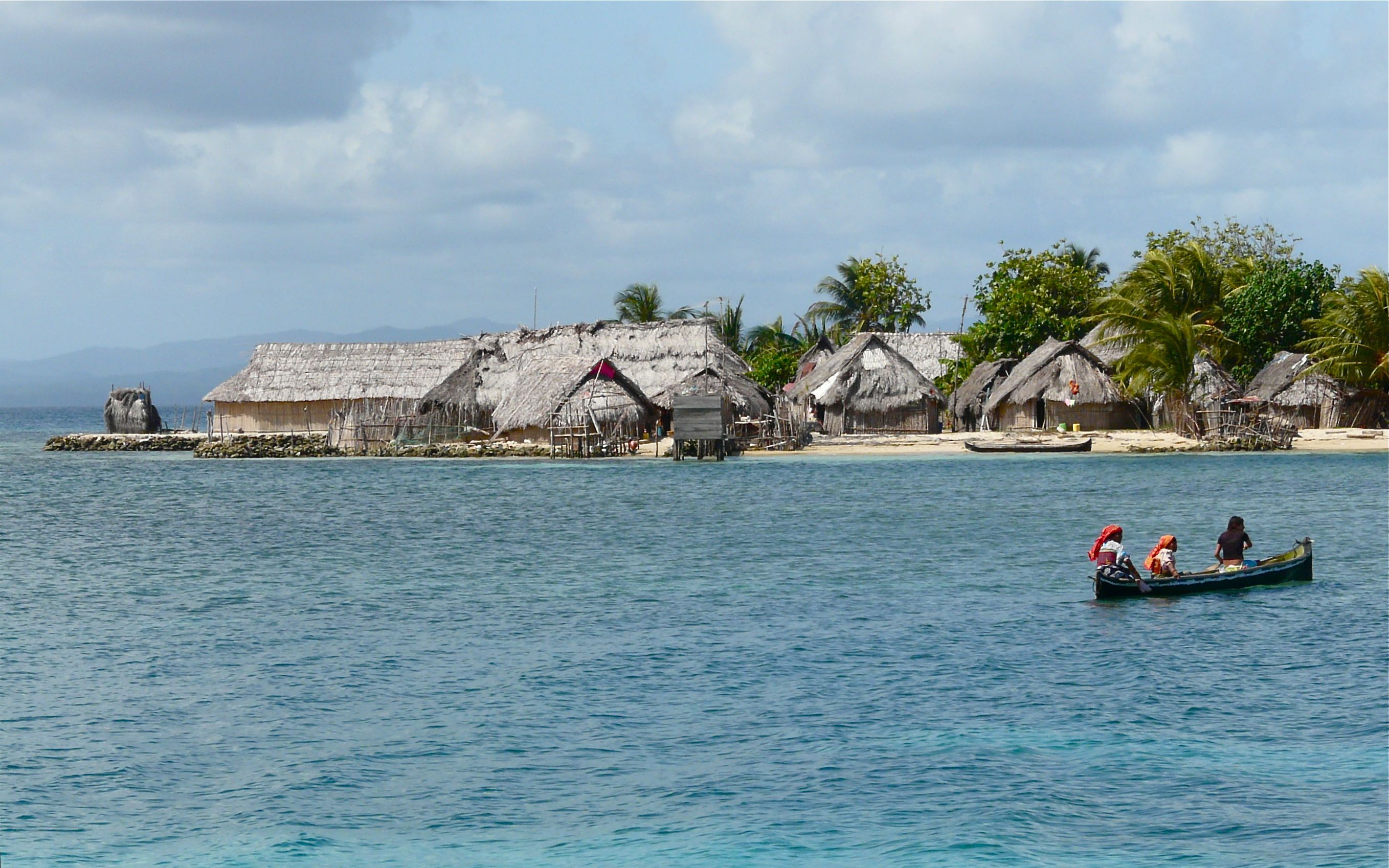
How can organizations support your work?
Unfortunately, due to funding constraints, last year's Guna Yala Women's Congress couldn't take place as usual under the Bundorgan women’s network in Panama. We aim to host it this September, seeking organizational support. Meanwhile, we're actively engaged in cultivating medicinal plants and ancestral agriculture. While external aid is helpful, it may not fully grasp Indigenous Peoples' deep connection to Mother Earth. I stress the importance of reclaiming ancestral memory in workshops with youth, guiding us towards a sustainable future. Ancestral practices, like using fruit peels for marine life, highlight the value of resourcefulness. Preserving this wisdom is crucial for shaping our future.
Thank you for sharing your profound insights and experiences. Your dedication to the environment and your community is truly inspiring.
Briseida Iglesias: Thank you for the opportunity to voice the concerns of my community and contribute to the global conversation on climate change. I hope our collective efforts lead to positive change for Mother Earth.
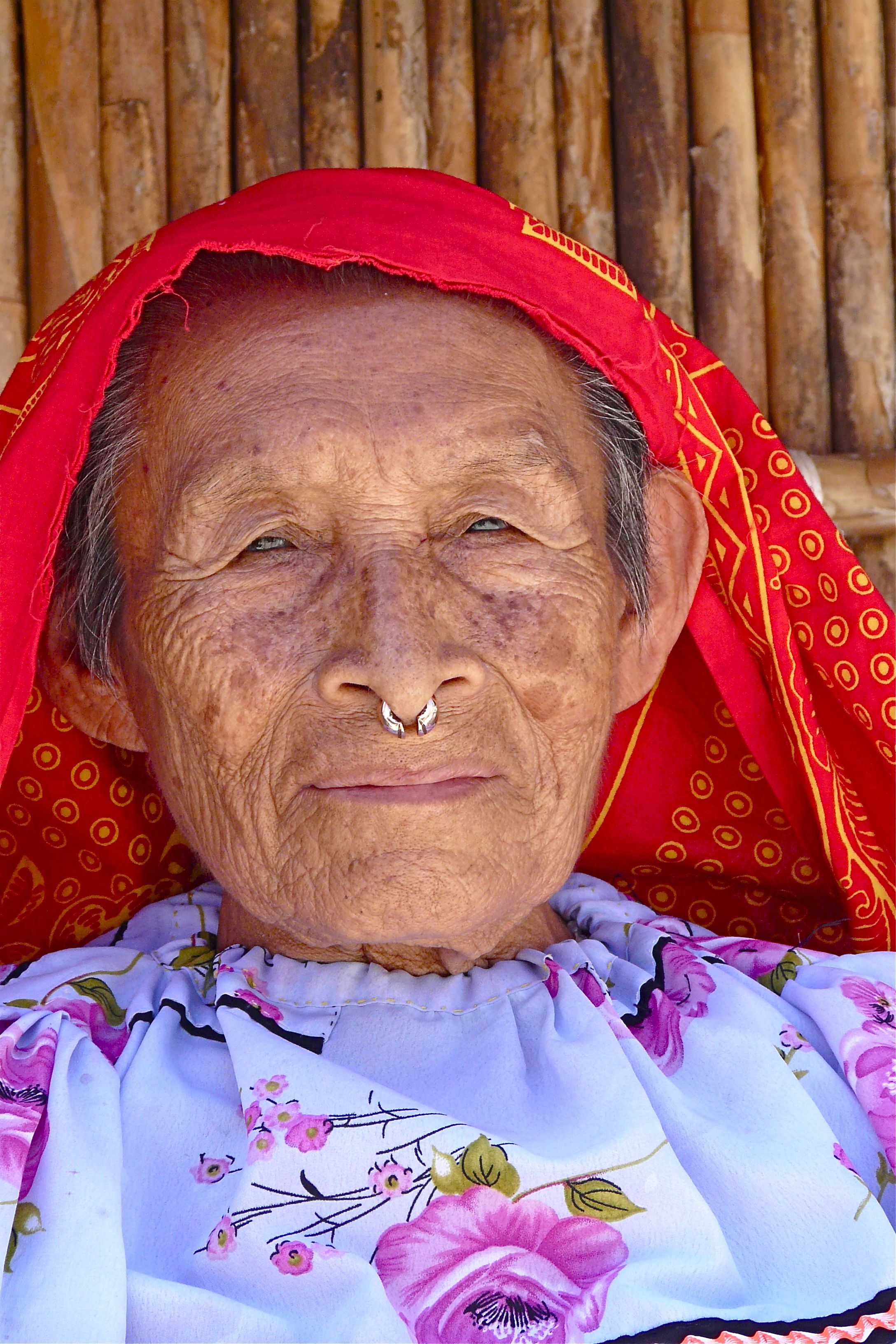
Indigenous woman in Guna Yala - to Briseida Iglesias and her community, upholding ancestral wisdom is key for a sustainable future. Photo copyright: Rita Willaert
Indigenous woman in Guna Yala - to Briseida Iglesias and her community, upholding ancestral wisdom is key for a sustainable future. Photo copyright: Rita Willaert
Footnotes:
UNDP Climate & Forests assists countries and stakeholders to implement the Paris Agreement by reducing deforestation, forest degradation and promoting sustainable development pathways.
UNDP Climate & Forests systematically promotes social equity, including the rights, knowledge, and inclusion of Indigenous Peoples and local communities, to ensure forest solutions to climate change contribute meaningfully to delivering on the NDCs and advancing the SDGs.
Credits:
Photo copyrights: as indicated
Interview with Briseida Iglesias in New York City (09/2022): Nina Kantcheva
Interview (02/2024), Editing, translation, visual layout: Roxana Auhagen
